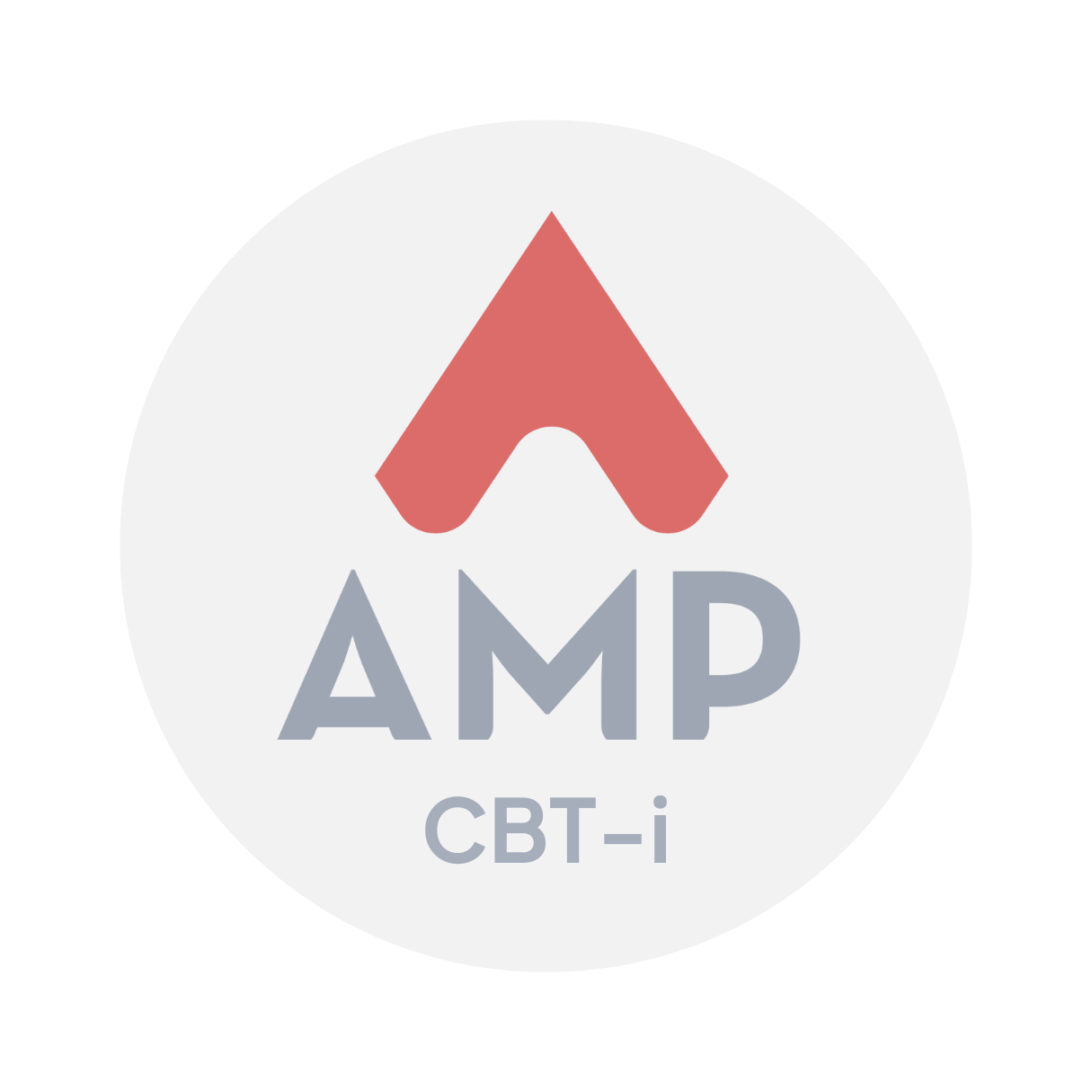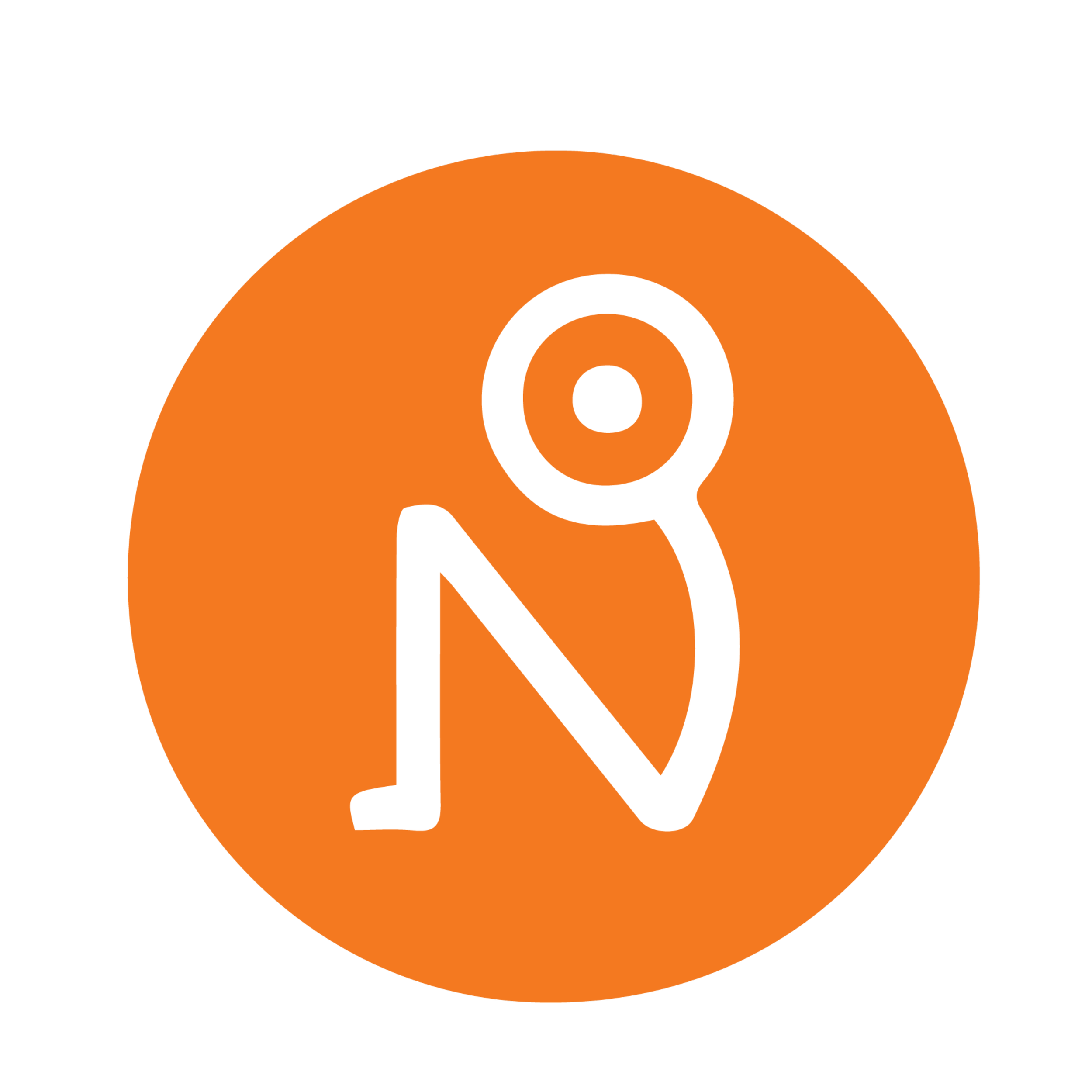
Upcoming Courses

PABC Presents: AMP Knowledge Project - Cervicothoracic Disorders (Vancouver)
Looking for course funding? Learn more about the BC Employer Training Grant here.
-
This course will focus on improving clinician ability to treat patients presenting with cervico-thoracic disorders. You will learn select high yield manual therapy skills, supported by evidence, that you will use on a regular basis. More importantly, develop skills that will allow you to stage and classify patients to specific interventions and progress them through an exercise based rehabilitation program that builds self-efficacy and resiliency.
This course will also develop your communication and listening strategies. You will gain skills to build therapeutic alliance with patients which will maximize both patient outcomes and patient satisfaction.
-
Rule out serious conditions in the cervical spine.
Classify cervicothoracic patients to specific treatment groups and effectively stage patient recovery.
Apply selected thrust and non thrust manual therapy interventions proficiently.
Understand how to effectively prescribe and progress an exercise program for a patient presenting with cervicothoracic pain.
Demonstrate communication and listening skills that will enable the clinician to establish a strong therapeutic partnership with the client.
Have adopted more than 3 habits to support reflective practice and continuous growth.
-
Meet Steve Young
Steve received an undergraduate degree from the University of Victoria before attending the McMaster University physiotherapy program in Hamilton, Ontario. He graduated summa cum laude in 1999 before returning to Victoria to work in private practice. He has extensive post graduate education, organizing and attending dozens of orthopaedic and pain science courses. He previously served as CBI Health’s Senior Clinical Educator for seven years on Vancouver Island and has taught continuing education courses throughout British Columbia and North America.
Along with maintaining a full-time musculoskeletal practice, Steve has been vigorously involved in teaching throughout BC and North America. He has been published in a number of journals and previously served as Chief Editor for the Orthopaedic Division Review from 2005 to 2007. He has also presented nationally at physiotherapy conferences. Steve was recognized for his clinical achievements in 2014 when he was chosen to receive the award for clinical excellence from the Physiotherapy Association of British Columbia. More recently, Steve completed post graduate training with the Evidence In Motion Institute of Health Professionals, an exceptional education group who invited Steve to teach within their program. His clinical interests include persistent pain, manual therapy and the integration of research evidence into clinical practice.
Meet Curtis Tait
Curtis has always enjoyed helping people, which made his journey to become a physiotherapist a natural one. Practicing since 2012, Curtis started his studies at the University of Victoria in 2004 studying kinesiology. This whetted his appetite to understand all aspects of the human body, and most especially movement. He reached his goal of becoming a physiotherapist graduating from the University of British Columbia in 2012, he has been practicing in Victoria since.
Curtis has a bottomless appetite for both food and for learning and growing professionally. To this end he has taken courses in manual and manipulative therapy, IMS/dry needling, vestibular and neurological rehabilitation, as well as chronic pain seminars. Having worked in private practice, pain management, head injury programs, and in neuro-rehabilitation, Curtis works with all types of clients. Sports injuries, chronic pain conditions, vestibular, neurological and concussion presentations are all within Curtis' area of expertise. While he maintains a diverse interest in treating all types of conditions, Curtis particularly enjoys spinal pain, headaches, hip, knee and ankle conditions, sports injuries, temporomandibular dysfunction, chronic pain, diabetes-related conditions, vestibular disorders, stroke and spinal cord injuries.
Inspired and enthused by an approach that focuses on providing his clients with the highest standard of care, Curtis completed post graduate training with The Evidence In Motion Institute of Health Professionals; a stellar program that focuses on evidence based practice and the clinical science of physiotherapy.
Curtis was naturally drawn to Tall Tree Integrated Health Centre based on the clinic’s orientation to excellence, fun, and positively changing the landscape of healthcare on Vancouver Island and in BC. He is very excited to be working with like-minded professionals dedicated to making a positive difference to their patients, community, and profession.
When not engrossed in the latest BJSM publication, Curtis loves spending time with his family and friends travelling around BC and the west coast finding adventures involving the beach and mountains. Having grown-up in northern BC and the Yukon he relishes any chance to play in the snow, and has maintained a love for board sports, basketball, photography and anything involving creative movement.
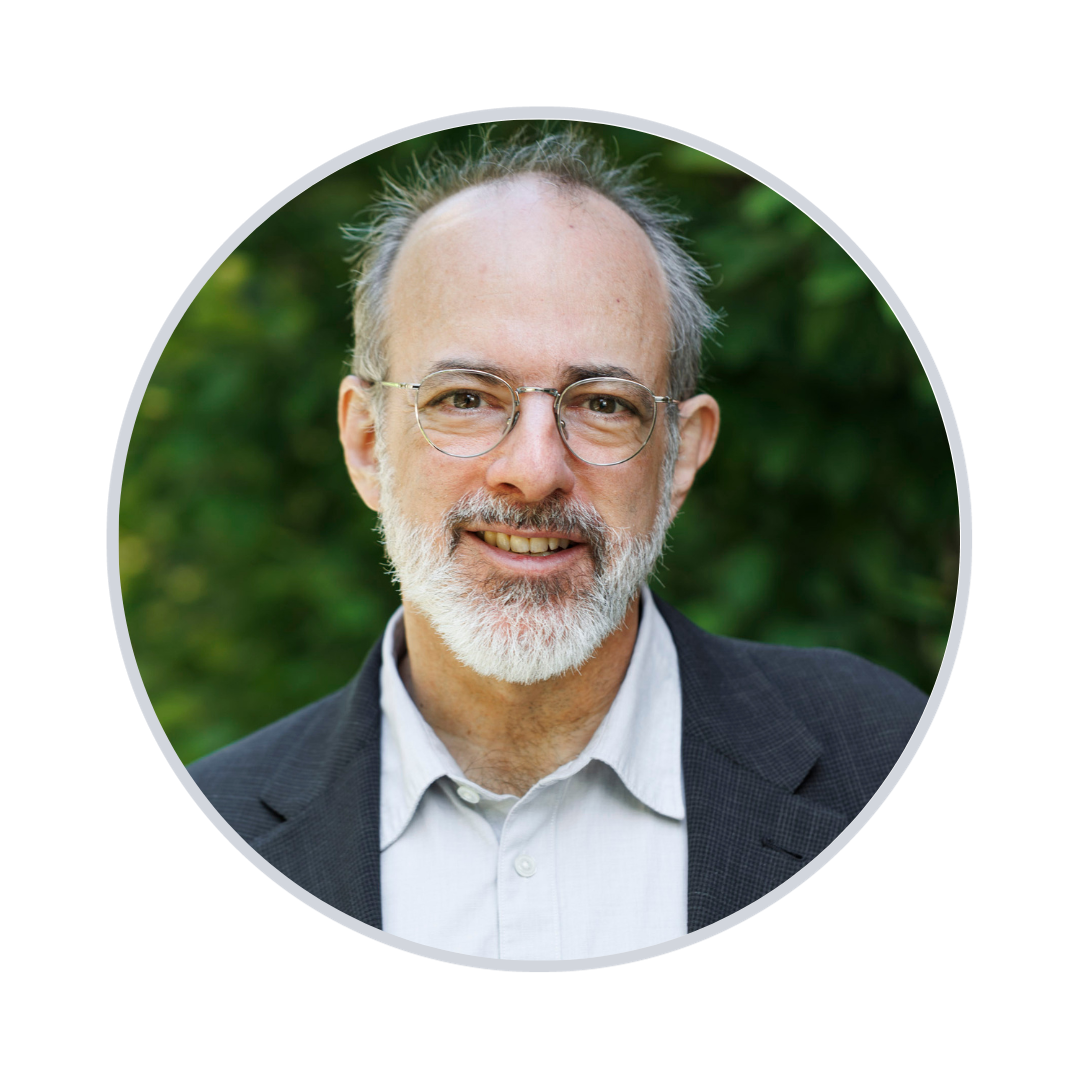
Psychological Treatment of Anxiety-Related Disorders and Perfectionism (Virtual Workshop)
Early Bird Pricing: $350 (Valid till August 16, 2024)
This course is designed for Psychologists, Psychotherapists, Occupational Therapists as well as other rehabilitation and mental health providers looking for solutions to managing anxiety and perfectionism in a variety of healthcare settings..
No expertise or previous learning in the content area is required.
-
Join us for this 1-day virtual workshop designed for all healthcare providers looking for solutions to managing anxiety and perfectionism in a variety of healthcare settings. Anxiety and related disorders are common, affecting about 20% of people at some point in their lives. In addition, those with high anxiety often set unrealistic standards for themselves, which can worsen their anxiety. This workshop provides evidence-based, step-by-step methods to help individuals overcome a range of anxiety-related problems, including panic disorder, generalized anxiety disorder, social anxiety disorder, obsessive-compulsive disorder, and post traumatic stress.
In addition, it will cover strategies for treating perfectionism, both as a main presenting problem and as a feature of other anxiety-related disorders. Attendees will learn cognitive techniques to challenge common beliefs that perpetuate anxiety and perfectionism. The workshop will also discuss well-established behavioural approaches (e.g., exposure therapy, behavioural activation, relaxation) as well as mindfulness and acceptance strategies.
Finally, the workshop will address how to handle ambivalence, resistance, and disengagement in therapy.
-
By the end of this workshop, participants will be able to:
Discuss the features of perfectionism and anxiety-related disorder.
Describe cognitive strategies for treating anxiety-related problems and perfectionism.
Describe behavioural strategies for treating anxiety-related problems and perfectionism.
Describe mindfulness and acceptance-based strategies for treating anxiety-related problems and perfectionism.
Identify strategies to defuse resistance and increase engagement.
-
Dr. Martin Antony PhD, CPsych, FRSC, FCAHS, ABPP is Professor and Chair in the Department of Psychology at Toronto Metropolitan University. Previously, he was founding director of both the Anxiety Treatment and Research Clinic and the Psychology Residency Program at St. Joseph’s Healthcare Hamilton. He was also Clinical and Training Lead for the Ontario Structured Psychotherapy Program. He is a fellow of the Royal Society of Canada and the Canadian Academy of Health Sciences, and he is a past president of the Canadian Psychological Association and the Association for Behavioral and Cognitive Therapies.
He has published 34 books and over 300 scientific articles and chapters in areas related to cognitive behavior therapy and anxiety-related disorders. He has given more than 425 presentations to audiences across four continents, and has been interviewed, featured, or quoted more than 450 times in various print, radio, television, and online media outlets, including BBC News, CBC, Chatelaine Magazine, CNN, CTV, the Globe and Mail, National Post, New York Times, O (Oprah) Magazine, Prevention Magazine, Reader’s Digest, Scientific American Mind, Toronto Star, USA Today, Washington Post, and many others.
-
Please note the local time zone for this workshop is 8 AM - 3:30 PM (PST).
If you are attending from Ontario the start time of the virtual workshop will be 11 AM - 6:30 PM (EST).
-
8:00 am: Start of Workshop
First Segment:
Overview of anxiety-related disorders and perfectionism
Introduction to evidence-based treatments
10:00 am: Break (15 min)
10:15 am:
Second Segment:
Cognitive strategies
Exposure-based strategies
12:00 pm: Lunch (1 hr)
1:00 pm:
Third Segment:
Behavioural activation
Relaxation-based strategies
Problem-solving strategies
2:15 pm: Break (15 min)
2:30 pm:
Fourth Segement:
Mindfulness and acceptance-based strategies
Motivational enhancement strategies
3:30 pm: End of Webinar
-
Participant learning will be assessed via interaction with the instructor throughout the workshop, question & answer, checking-in regarding consolidation of new learning and application to case studies during the live workshop.
At the conclusion of this event, AMP Healthcare Education will collect participant evaluations of the overall learning experience.
Participants will receive a course certificate upon competition.
AMP Healthcare Education is approved by the Canadian Psychological Association to offer continuing education for psychologists. AMP Healthcare Education maintains responsibility for the program. This course is approved for 6 CE credits for psychologists. Obtaining the full amount of CEs will require that participants attend all live components of this course and complete any self-paced learning included with the course. Attendance will be taken at each live session & if there is self-paced learning connected with this course, completion will be monitored using the Learn Worlds platform's participant progress tracking feature.
Looking for funding? Click below to learn more about your funding options in BC or Ontario:
A 10% cancellation fee will be applied to all refunds prior to 2 weeks before the beginning of the course. We cannot issue refunds within 2 weeks of the start date of the course.
The CPA’s approval of an individual, group, or organization as a CE Sponsor or Provider is restricted to the activities described in the approved application or annual report form. The CPA’s approval does not extend to any other CE activity the Sponsor or Provider might offer. In granting its approval, the CPA assumes no legal or financial obligations to Sponsors, Providers, or to those individuals who might participate in a Sponsor or Provider’s CE activities or programs. Further, responsibility for the content, provision, and delivery of any CE activity approved by the CPA remains that of the CE Sponsor or Provider. The CPA disclaims all legal liability associated with the content, provision, and delivery of the approved CE activity.

NOI Presents: Explain Pain with Luke Bongiorno, PT, MCMT (Burlington, ON)
Early Bird Pricing: $750. Price will increase on June 7th, 2024.
Looking for course funding? Learn more about the Canada-Ontario Job Grant here.
-
In the midst of the opioid epidemic, Explain Pain provides an effective, drug-free solution. The provision of pain knowledge to patients is an effective evidence-based treatment tool and patients have a large capacity for understanding.
Based on David Butler and Lorimer Moseley’s book of the same name, this course explains how the pain system works when there are injured tissues and nerves, what happens in the brain in relation to pain experiences, and the impact of stress in relation to pain. Explain Pain is delivered in a way in which any professional working with patients or clients in pain can utilize.
PLEASE NOTE: This venue is not wheelchair accessible.
-
Luke graduated from The University of Melbourne, and is currently in clinical practice in New York. One of New York City’s most prominent physical therapists, Luke practices a ‘hands-on’ approach combining his advanced manual skills with neuromuscular/exercise and education Luke has a strong belief that education is fundamental in optimizing patient recovery and performance. He has taught advanced skills courses in Manual Therapy internationally since 2004 and has been on the NOI faculty since since 2015.
Luke has extensive experience in the management of acute and chronic pain and sports injuries and is affiliated in the clinical education programs of Columbia University and Touro College. Luke also treats professional and Olympic athletes as well as touring performing arts/dance company members. He currently serves as a consultant with the NBA League as well as European soccer professional teams.
Luke is the co-founder of NY Sports Medicine which was later acquired by Orthology. He is currently involved in clinical research focused on injury management and is developing guidelines for injury prevention in sports medicine and in the workplace.
-
“Excellent, knowledgeable, experienced instructor who is very approachable and thoughtful when answering questions in the class. Great job!”
“Luke Bongiorno’s sense of humor and positive attitude lets you intuitively know he can and will help you – both physically and emotionally – through your tough time. Thank you Luke for making such a difference in my health.”
“I’ve worked with 7 different PTs over 3 years on a challenging shoulder rehab. Luke stands above the rest. His focused and personalized attention helped me understand the why and how of my rehab so I could get back to the activities I enjoy and maintain a healthy fitness plan for the long run.”
PLEASE NOTE: This venue is not wheelchair accessible.
A 10% cancellation fee will be applied to all refunds prior to 2 weeks before the beginning of the course. We cannot issue refunds within 2 weeks of the start date of the course.
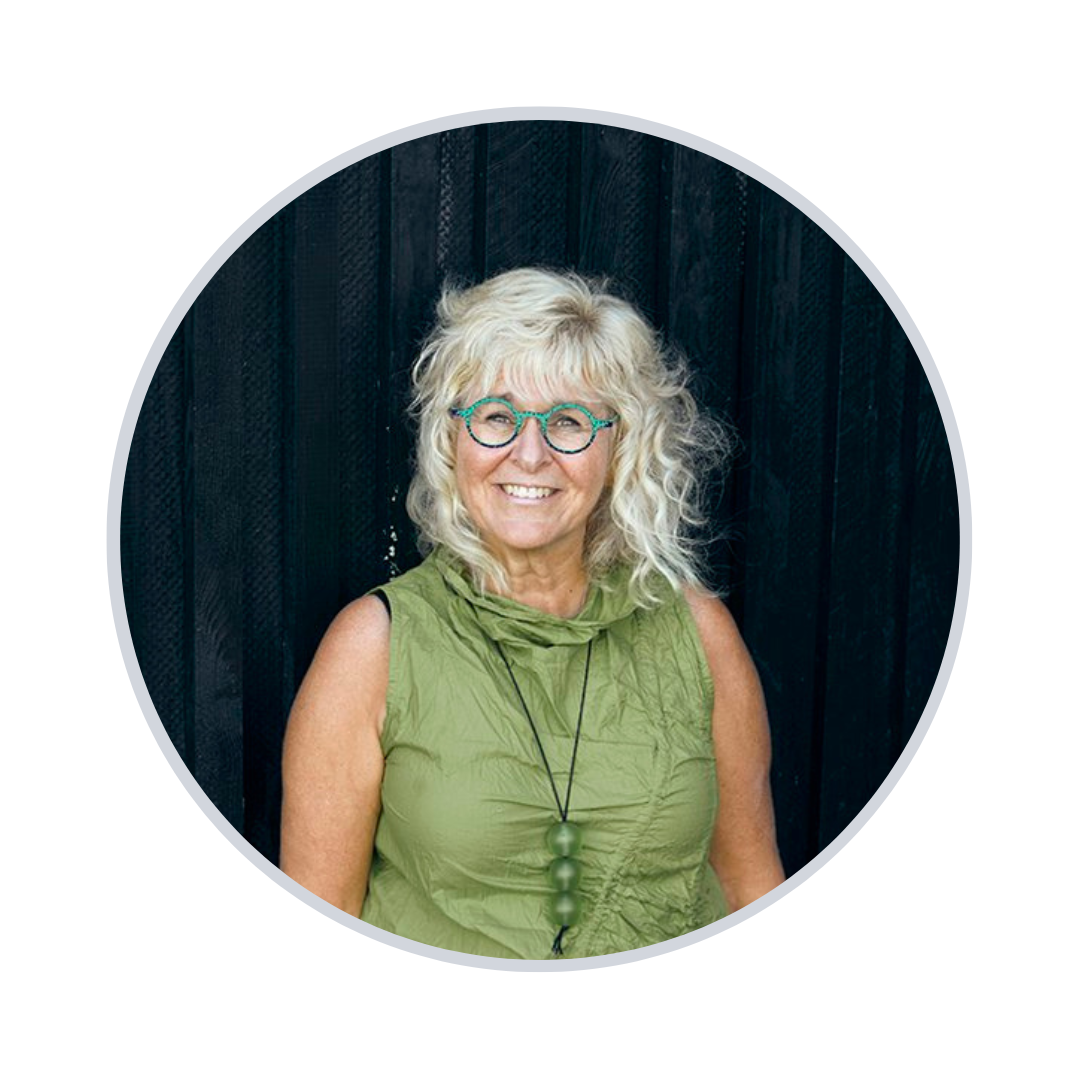
Psycho-Sensory Intervention: Informed and Integrated Mental Health Support Strategies for the Treatment of Trauma with Kim Barthel (Guelph, ON)
This course is designed for Psychologists, Psychotherapists, Occupational Therapists as well as other rehabilitation and mental health providers interested in learning how to integrate psychotherapeutic skill with sensory processing, postural and movement interventions.
No expertise or previous learning in the content area is required.
Looking for course funding? Learn more about the Canada-Ontario Job Grant here.
-
This three-day workshop is for Occupational Therapists, Mental Health Providers, Speech Language Pathologists, Physiotherapists and other allied health looking for concrete strategies to more effectively support their clients of all ages who are impacted by trauma.
This course will provide an integrated theoretical connection about the neurological interplay between attachment, developmental trauma and sensory processing issues. Participants will develop an understanding of the use of relational attunement as a regulatory influence that supports and stabilizes the arousal and sensory processing systems. This workshop will uniquely blend the integration of psychotherapeutic skills with sensory processing intervention.
Health care providers will learn how to put these two distinct therapeutic approaches together as a mechanism for the development of self-regulation and mental health function. A combination of theory and practical trauma interventions will emphasize compassionate dialoguing skills, sensory strategies, postural control and movement techniques together with attachment theory and psychotherapeutic process work. Learning will be facilitated through lecture, story-telling, group problem-solving from case examples, role plays and active reflection.
-
Participants will be able to:
Explain how attachment strategies are functionally adaptive in relation to developmental trauma
Describe the connection between trauma, arousal and sensory processing challenges
Discuss how the use of relational attunement skills and therapeutic use of self can stabilize arousal and support sensory processing issues
Develop a repertoire of sensory processing strategies to address trauma
Understand how trauma impacts postural control
Learn to provide therapeutic intervention to the postural and movement system to affect change in the emotional responses to trauma (treating trauma through the body)
Begin to integrate psychotherapeutic process within a sensory motor context
-
As a clinician with a private practice since 1989, Kim Barthel BMR, OTR is a registered Occupational Therapist in British Columbia, Ontario and the United States. While she is predominantly a speaker and teacher, she also assesses and supports a wide range of clients, often when there is complexity involved. She is an Advanced Neuro-Developmental Treatment Instructor as well as a Sensory Integration Instructor.
Kim travels widely as an instructor to a range of therapists, educators, social workers, physicians, special-needs care providers and parents. Her specialties in workshop instruction include Trauma-Sensitive Practice, Pediatric Neuro-Developmental Treatment, Sensory Processing, Attachment Theory, as well as understanding and supporting complex behaviour and mental Health. In May, 2019, Kim was honoured as the recipient of the prestigious Award of Merit by the Canadian Association of Occupational Therapists.
-
Day 1:
Morning:
Attachment strategies as functional adaptations to perceived danger.
10:15 am - 10:30 am: Break
12:00 pm - 1:00 pm: Lunch
Afternoon:
Developmental trauma, sensory processing and arousal.
Sensory processing interventions as treatment for trauma and mental health challenges.
2:15 pm - 2:30 pm: Break
5:00 pm: End of Day
Day 2:
Morning:
Continued sensory processing interventions for treatment of trauma and mental health challenges.
10:15 am - 10:30 am: Break
12:00 pm - 1:00 pm: Lunch
Afternoon:
How is trauma exhibited in the postural system?
Treating trauma through movement and postural supports.
2:15 pm - 2:30 pm: Break
5:00 pm: End of Day
Day 3:
Morning: Becoming your best self and self-care.
12:00 pm - 1:00 pm: Lunch
Afternoon:
Relational interventions
The art of regulation through relationship
Compassionate dialoguing in the sensory environment
2:15 pm - 2:30 pm: Break
5:00 pm: End of Day
A 10% cancellation fee will be applied to all refunds prior to 2 weeks before the beginning of the course. We cannot issue refunds within 2 weeks of the start date of the course.

NOI Presents: Bodily Relearning with Benjamin Boyd, PT, DPTSc (Vancouver, BC)
This is a brand new live in-person course.
Looking for course funding? Learn more about the BC Employer Training Grant here.
-
Bodily Relearning is an all-new course offered by Noigroup based on and supported by the Bodily Relearning book by author, educator, and physical therapist Benjamin Boyd, PT, DPTSc .
In this interactive course, we will explore how to help those in pain gain insight, knowledge, and understanding about how bodily protection systems operate and how to regain some control over these protection responses, including pain. We will investigate the use of movement exploration and reflection to help reset bodily protection responses.
Additionally, we will explore other concurrent strategies, such as targeted neurodynamic exercises and mindfulness practices, to help reset bodily protection levels and increase engagement in meaningful life activities. With the skills emphasised in this course, we aim to drive bodily relearning by facilitating bioplastic adaptations to reset bodily protection responses towards less protection, less pain, and more freedom of movement.
-
Ben works as a Physical Therapist at Stanford ValleyCare in Livermore, California where he specializes in persistent pain conditions, working with both individual clients and group classes. He has worked as an outpatient Physical Therapist in multiple practice settings within the San Francisco Bay Area, seeing patients with a variety of neuromusculoskeletal complaints. He received certification as an Orthopaedic Clinical Specialist through the American Physical Therapy Association in 2008.
In addition, Ben was an Associate Professor at Samuel Merritt University in Oakland, California for 12 years, where he taught in their entry-level Physical Therapy Program. He continues to work as an Adjunct Associate Professor for this program, teaching on a part-time basis. Ben has been teaching courses on peripheral nervous system anatomy, biomechanics, clinical evaluation, and intervention since 2004 and he joined the NOI US teaching faculty in 2013.
Ben originally graduated from the joint program at the University of California, San Francisco and San Francisco State University (UCSF/SFSU) with a Masters of Science in Physical Therapy in 2002, returning in 2008 to earn his Doctor of Physical Therapy Science degree.
Ben has been involved in research examining neuropathic pain conditions, including the mechanosensitivity of the nervous system in people with Diabetes Mellitus and in women post breast cancer treatment.
-
“Great speaker, very knowledgeable about the course material and evidence-based on other areas. Was able to answer participants questions well.”
“Excellent, knowledgeable, experienced instructor who is very approachable and thoughtful when answering questions in the class. Great job!”
“Ben was a fantastic presenter. He was very personable and approachable, answering questions in a helpful and discussion based manner.”
“Ben is an excellent clinical educator. Really appreciated watching him work with the group and pitching things to various levels for the different participants. Great to see adult learning in action”
-
Bodily Relearning is a book for all healthcare providers and movement specialists who are actively helping those suffering from persistent pain. Participants are welcome to purchase the book as a resource to enhance their learning, but it is not mandatory.
Click here to purchase the book.
A 10% cancellation fee will be applied to all refunds prior to 2 weeks before the beginning of the course. We cannot issue refunds within 2 weeks of the start date of the course.

Behavioural Solutions to Depression That Work with Dr. Colleen E. Carney (Vancouver, BC)
This course is designed for Psychologists, Psychotherapists, Occupational Therapists as well as other rehabilitation and mental health providers interested in integrating Behavioural Activation techniques into their practice.
No expertise or previous learning in the content area is required.
Looking for course funding? Learn more about the BC Employer Training Grant here.
-
Join us for this one day workshop designed for all health care providers looking for solutions to managing Depression in a variety of health care settings.
You don’t have to have mental health expertise to effectively incorporate these concrete strategies into your health care practice to more effectively support your clients who are experiencing Depression!
Major depression is a huge contributor to the global burden of disease and is the leading cause of disability worldwide (Ferrari et al.,2010; World Health Organization, 2017). Depression has symptoms that can impair motivation and sap energy, so that clients understandably can feel stuck in multiple domains in their life.
When people feel like they cannot move towards what they want, they can feel hopeless. Health providers need evidence-based, easy to deliver strategies for their clients with depression to help with depression symptoms, as well as help them with inertia and take action in their recovery.
Behavioural activation is an evidence-based treatment for depression (Martell, Dimidjian, & Herman-Dunn, 2010) that helps clients identify behaviours most likely to create momentum towards feeling better, and to test out strategies to enact these mood-boosting behaviours.
-
This interactive workshop will teach you how to identify problems associated with depression and techniques from behavioural activation such as:
1) Strategies for moving when you don’t feel like it
2) Behavioural strategies for ruminating
3) Designing tests of the mood and activity connection
4) Collaborating on an activity schedule
5) Strategies for those who are "overscheduled"
Using experiential exercises and case studies, you will get active practice in this treatment.
-
Dr. Colleen Carney, PhD is a Professor at Toronto Metropolitan University and the Director of the Sleep and Depression Laboratory. Dr. Carney is a leading expert on depression and insomnia treatment, with over 25 years of experience in cognitive behavioural therapy, and over 100 publications, including 12 books. Dr. Carney trains students and professionals internationally - delivering over 200 clinical workshops. They are a passionate advocate for improving access to evidence based treatments for insomnia and depression.
-
June 8th, 2024
9:00AM - 10:30 AM PST.
After students have had ample time to explore and handle the concepts and practices delivered in the 1-day workshop, Dr. Carney will host a 90-minute virtual group coaching session. Students are encouraged to bring questions and case studies to this session where they can unpack issues they are having or seek clarification.
-
March 16th, 2024
9:00 am – 10:15 am
Assessment (brief overview)
Causes of major depressive disorder
10:15 am – 10:30 am
Break
10:30 am – 12 pm
Presenting a behavioural formulation for depression
Activity Scheduling
12 pm – 1 pm
Lunch
1:00 pm – 2:30 pm
Strategies for rumination
Behavioural experiments
2:30 pm – 2:45 pm
Break
2:45 pm – 5:00 pm
Finishing up; applying what we learned in a case; troubleshooting
Questions
June 8th, 2024 9 am - 10:30 am PST: Q&A, Case studies & Coaching!
-
Participant learning will be assessed via interaction with the instructor throughout the workshop, question & answer, checking-in regarding consolidation of new learning and application to case studies during the live workshop and follow-up group coaching session.
At the conclusion of this event, AMP Healthcare Education will collect participant evaluations of the overall learning experience. Participants will receive a course certificate upon competition.
AMP Healthcare Education is approved by the Canadian Psychological Association to offer continuing education for psychologists. AMP Healthcare Education maintains responsibility for the program. This course is approved for 8 CE credits for psychologists. Obtaining the full amount of CEs will require that participants attend all live components of this course and complete any self-paced learning included with the course. Attendance will be taken at each live session & if there is self-paced learning connected with this course, completion will be monitored using the Learn Worlds platform's participant progress tracking feature.
A 10% cancellation fee will be applied to all refunds prior to 2 weeks before the beginning of the course. We cannot issue refunds within 2 weeks of the start date of the course.
The CPA’s approval of an individual, group, or organization as a CE Sponsor or Provider is restricted to the activities described in the approved application or annual report form. The CPA’s approval does not extend to any other CE activity the Sponsor or Provider might offer. In granting its approval, the CPA assumes no legal or financial obligations to Sponsors, Providers, or to those individuals who might participate in a Sponsor or Provider’s CE activities or programs. Further, responsibility for the content, provision, and delivery of any CE activity approved by the CPA remains that of the CE Sponsor or Provider. The CPA disclaims all legal liability associated with the content, provision, and delivery of the approved CE activity.

Cognitive Behavioral Therapy for Insomnia (CBT-I): Evidence-based Insomnia Interventions with Dr. Colleen E. Carney (Toronto, ON)
Sleep can be upstream of many health & MSK complaints. And sleep hygiene isn’t enough. CBT-i is gold standard care for sleep issues and Dr. Colleen Carney is the preeminent instructor in North America.
-
Join us for a 1-day intensive workshop, Cognitive Behavioral Therapy for Insomnia (CBT-I), instructed by Psychologist, Researcher and Professor Dr. Colleen Carney. This course is designed for clinicians who are interested in either learning about sleep and non-pharmacological interventions for insomnia, adding CBT-i to their clinical practice or looking to refresh their current CBT-i skillset. By the end of the workshop and a single follow virtual mentorship session, clinicians will have the core competencies to apply CBT-i in their clinical practice for a variety of clinical populations.
In this workshop, you will learn what is insomnia, sleep regulation and how to leverage the body's physiology to get client's better sleep. Dr. Carney will bust a few myths when it comes to sleep, discuss the evidence for sleep interventions and review the pros and cons regarding pharmacological management. Importantly, Dr. Carney will dive deep into what is CBT, the core components of CBT-i, common stuck points clinicians may struggle with and what to do about them. Clinicians will learn about evidence-based screening tools to ensure client's receive the right interventions and get the care they need.
-
April 20th, 2024
9:00AM - 10:30 AM EST.
After students have had ample time to explore and handle the concepts and practices delivered in the 1-day CBT-I workshop, Dr. Carney will host a 90-minute virtual group coaching session. Students are encouraged to bring questions and case studies to this session where they can unpack issues they are having or seek clarification on all things CBT-I and insomnia.
-
Apply assessment tools that screen for other sleep disorders and identify insomnia treatment targets as it relates to case conceptualization.
Teach clients about the science of sleep and the causes of chronic insomnia for purposes of client psychoeducation.
Ascertain key perpetuating factors for chronic insomnia to understand the etiology of chronic insomnia.
Collaboratively design a sleep schedule with clients using a sleep diary to improve client’s sleep efficiency and daytime functioning.
Combine stimulus control and sleep restriction therapy to address the three major causes of chronic insomnia.
Utilize counter-arousal strategies to target hyper arousal in clients.
Modify a client’s distorted beliefs about sleep using cognitive therapy techniques to improve adherence and decrease sleep related anxiety.
Analyze three models of CBT-I delivery and implementation issues for different practice settings.
Apply CBT-I treatment components to target perpetuating factors in clients with comorbid insomnia.
Use cognitive and behavioural strategies to improve adherence with depressed clients.
Modify treatment recommendations for clients who have symptoms of high sleep anxiety.
Anticipate and resolve common treatment challenges in clients with PTSD such as sleep avoidance, fear of loss of vigilance and nightmare awakenings.
Apply CBT-I techniques to clients with mild traumatic brain injury.
Develop strategies to re-associate bed with sleep in clients with chronic pain.
Combine CBT-I with a guided hypnotic taper to reduce rebound insomnia and psychological dependence in clients who wish to decrease or discontinue their use of sleep medication.
Implement clinical treatment strategies to improve CPAP adherence in clients with co occurring obstructive sleep apnea.
Combine behavioural interventions with evidence-based strategies, such as light therapy and strategically-timed melatonin, to “reset the clock” in clients with circadian rhythm sleep disorders.
Use imagery rehearsal therapy to improve frequency and intensity of recurrent nightmares in clients with or without PTSD.
Practice using advanced case formulation techniques to accurately select combination and order of CBT-I components.
-
Colleen E. Carney, Ph.D., is on faculty in the Department of Psychology at Ryerson University, where she is director of the Sleep and Depression Laboratory. She is a leading expert in psychological treatments for insomnia, particularly in the context of co-occurring mental health issues. Her work has been featured in The New York Times and she has over 100 publications on insomnia.
She frequently trains students and mental health providers in CBT for Insomnia at invited workshops throughout North America and at international conferences. Dr. Carney is a passionate advocate for improving the availability of treatment for those with insomnia and other health problems. For more information, please visit www.drcolleencarney.com.
A 10% cancellation fee will be applied to all refunds prior to 2 weeks before the beginning of the course. We cannot issue refunds within 2 weeks of the start date of the course.
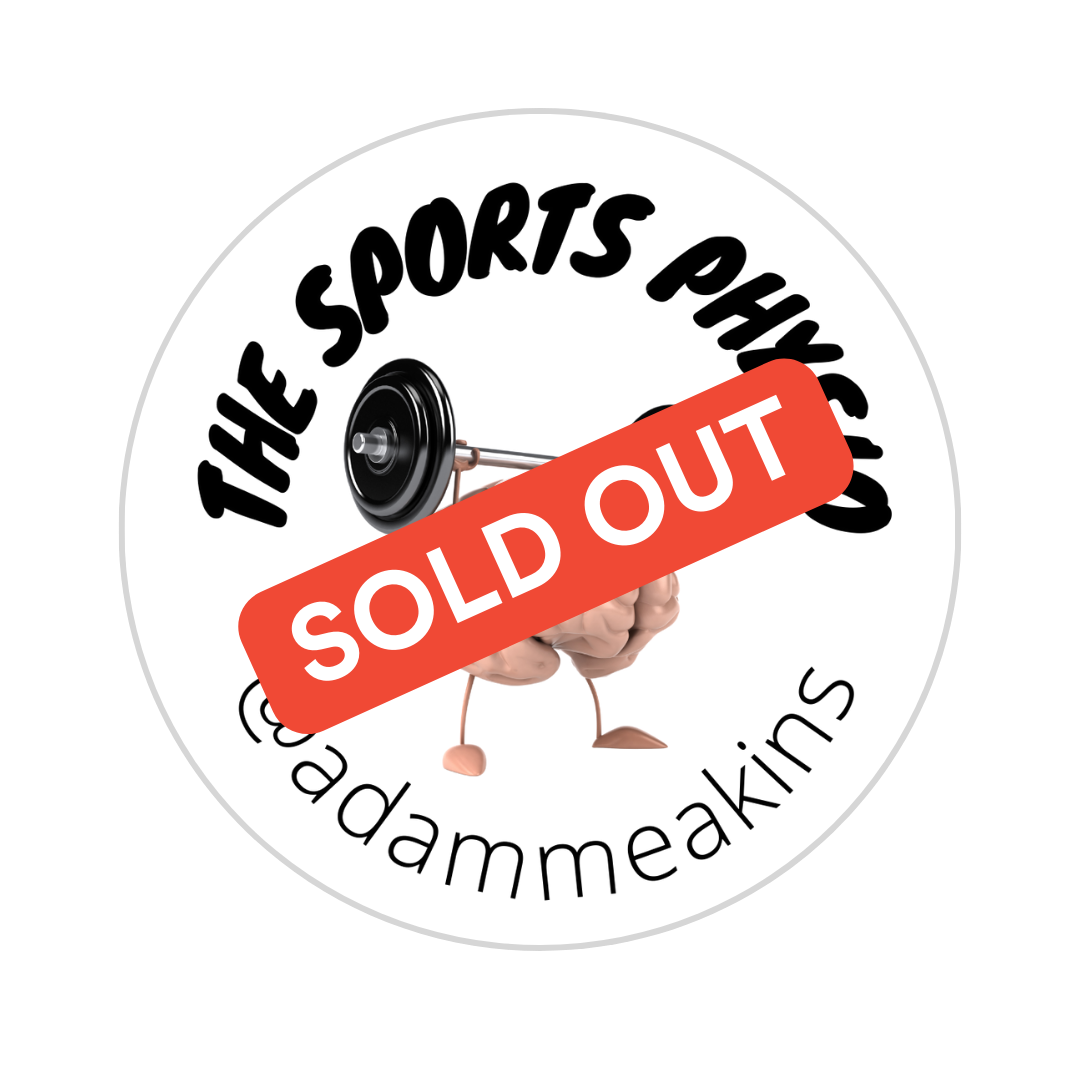
The Painful Shoulder: Complex Doesn't Have to be Complicated (with Adam Meakins)
-
A fun and informal workshop packed full of information designed for all therapists, regardless of their titles or experience, who are looking for a patient-centred, pragmatic, and practical approach to the assessment and management of all painful shoulder issues.
This two day workshop is designed to give therapists the confidence that simplifying the shoulder is safe, effective, and evidence based. It is also designed to be highly clinically relevant and to give lots of helpful hints and tips that can be put into practice immediately. The workshop promises to be informative, informal, and fun, presented by Adam in his own unique and controversial style as he cuts through the host of myths and misconceptions that surround the shoulder.
This course aims to give all attending the confidence that doing the simple things well is both efficient, effective, and evidence-based. It also cuts through all the bullshit and bluster as well as the many over complicated and confusing methods and opinions out there around painful shoulders. This course doesn’t promise any fancy techniques, miracle cures, or quick fixes. Instead it focuses on simple, honest, practical approaches giving heaps of tips and ideas that can be used with all who have painful shoulders.
-
Simplify the assessment, management, and treatment of the most commonly encountered shoulder problems
Examine how to best assess and diagnose painful shoulders
Expose some common myths and misconceptions around shoulder anatomy, biomechanics, assessments, and pathology
Evaluate how to best assess shoulder movement, strength, endurance, power, proprioception, and its kinetic chain
Practice all levels of shoulder rehab exercises and how design a comprehensive and progressive shoulder rehab program
-
Adam Meakins is an Extended Scope Physiotherapist and a Clinical Lead for Sport and Exercise Medicine in both the NHS and private practice. Adam has been a shoulder specialist for nearly 10 years, and has worked in various settings, including professional sport, and has been fortunate enough to work with some of the worlds leading shoulder specialists, helping a wide and diverse range of patients recover from shoulder problems.
Adam has extensive training and clinical experience in orthopaedic medical assessment and treatment, and always looks for the most effective, efficient, and evidence-based approach to help all he sees recover as quickly and safely as possible. His main philosophy is to do the basics really well and save the complex stuff for later if needed. Adam strongly believes in a practical and pragmatic approach, and is passionate about educating patients and clinicians on the evidence and effectiveness or lack of it for many treatments within the profession.
A 10% cancellation fee will be applied to all refunds prior to 2 weeks before the beginning of the course. We cannot issue refunds within 2 weeks of the start date of the course.
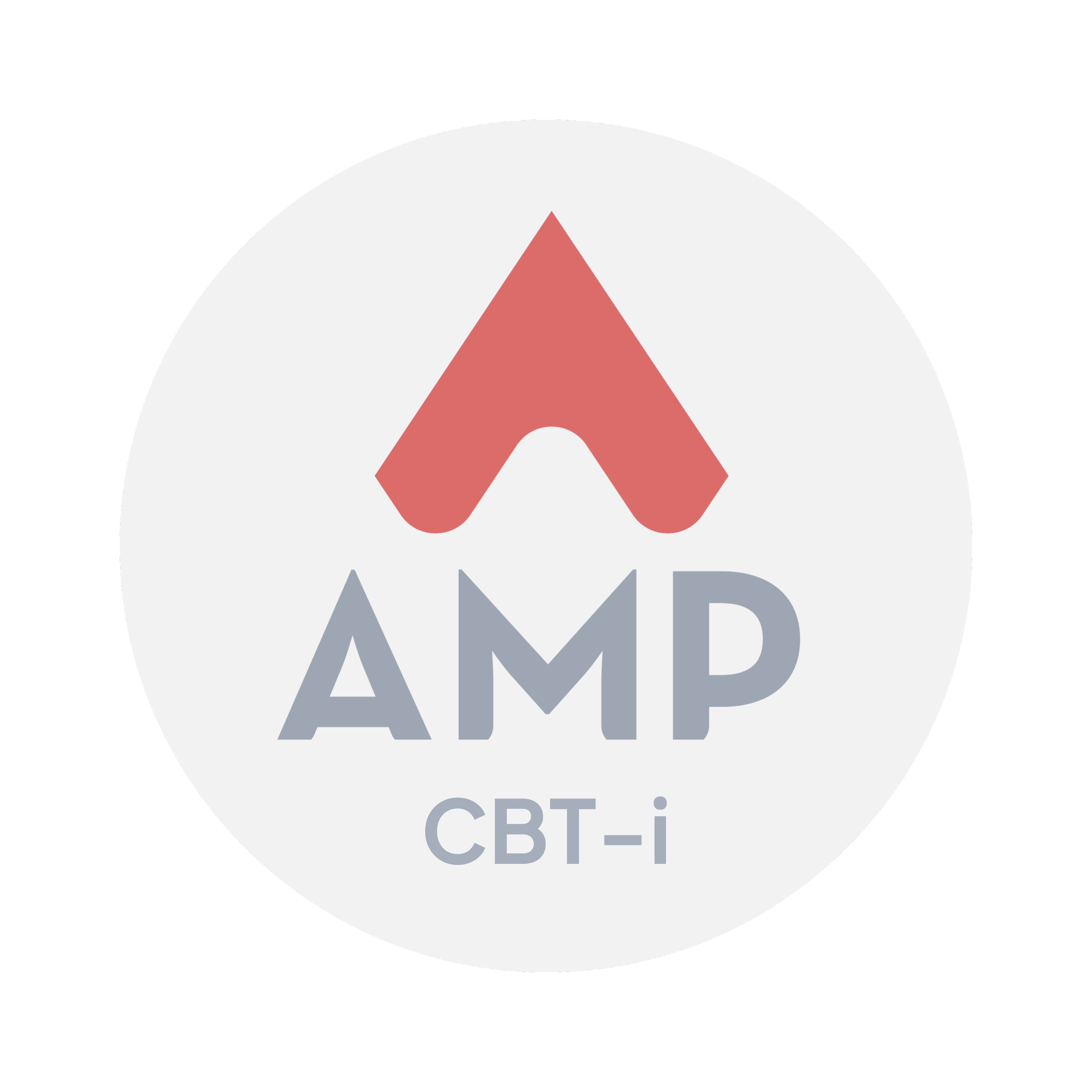
Cognitive Behavioral Therapy for Insomnia (CBT-I): Evidence-based Insomnia Interventions
-
Join us for a 1-day intensive workshop, Cognitive Behavioral Therapy for Insomnia (CBT-I), instructed by Psychologist, Researcher and Professor Dr. Colleen Carney. This course is designed for clinicians who are interested in either learning about sleep and non-pharmacological interventions for insomnia, adding CBT-i to their clinical practice or looking to refresh their current CBT-i skillset. By the end of the workshop and a single follow virtual mentorship session, clinicians will have the core competencies to apply CBT-i in their clinical practice for a variety of clinical populations.
In this workshop, you will learn what is insomnia, sleep regulation and how to leverage the body's physiology to get client's better sleep. Dr. Carney will bust a few myths when it comes to sleep, discuss the evidence for sleep interventions and review the pros and cons regarding pharmacological management. Importantly, Dr. Carney will dive deep into what is CBT, the core components of CBT-i, common stuck points clinicians may struggle with and what to do about them. Clinicians will learn about evidence-based screening tools to ensure client's receive the right interventions and get the care they need.
-
Saturday, May 13, 9:00am - 10:30am
After students have had ample time to explore and handle the concepts and practices delivered in the 1-day CBT-I workshop, Dr. Carney will host a 90-minute virtual group coaching session. Students are encouraged to bring questions and case studies to this session where they can unpack issues they are having or seek clarification on all things CBT-I and insomnia.
-
Apply assessment tools that screen for other sleep disorders and identify insomnia treatment targets as it relates to case conceptualization.
Teach clients about the science of sleep and the causes of chronic insomnia for purposes of client psychoeducation.
Ascertain key perpetuating factors for chronic insomnia to understand the etiology of chronic insomnia.
Collaboratively design a sleep schedule with clients using a sleep diary to improve client’s sleep efficiency and daytime functioning.
Combine stimulus control and sleep restriction therapy to address the three major causes of chronic insomnia.
Utilize counter-arousal strategies to target hyper arousal in clients.
Modify a client’s distorted beliefs about sleep using cognitive therapy techniques to improve adherence and decrease sleep related anxiety.
Analyze three models of CBT-I delivery and implementation issues for different practice settings.
Apply CBT-I treatment components to target perpetuating factors in clients with comorbid insomnia.
Use cognitive and behavioural strategies to improve adherence with depressed clients.
Modify treatment recommendations for clients who have symptoms of high sleep anxiety.
Anticipate and resolve common treatment challenges in clients with PTSD such as sleep avoidance, fear of loss of vigilance and nightmare awakenings.
Apply CBT-I techniques to clients with mild traumatic brain injury.
Develop strategies to re-associate bed with sleep in clients with chronic pain.
Combine CBT-I with a guided hypnotic taper to reduce rebound insomnia and psychological dependence in clients who wish to decrease or discontinue their use of sleep medication.
Implement clinical treatment strategies to improve CPAP adherence in clients with co occurring obstructive sleep apnea.
Combine behavioural interventions with evidence-based strategies, such as light therapy and strategically-timed melatonin, to “reset the clock” in clients with circadian rhythm sleep disorders.
Use imagery rehearsal therapy to improve frequency and intensity of recurrent nightmares in clients with or without PTSD.
Practice using advanced case formulation techniques to accurately select combination and order of CBT-I components.
-
Colleen E. Carney, Ph.D., is on faculty in the Department of Psychology at Ryerson University, where she is director of the Sleep and Depression Laboratory. She is a leading expert in psychological treatments for insomnia, particularly in the context of co-occurring mental health issues. Her work has been featured in The New York Times and she has over 100 publications on insomnia.
She frequently trains students and mental health providers in CBT for Insomnia at invited workshops throughout North America and at international conferences. Dr. Carney is a passionate advocate for improving the availability of treatment for those with insomnia and other health problems. For more information, please visit www.drcolleencarney.com.
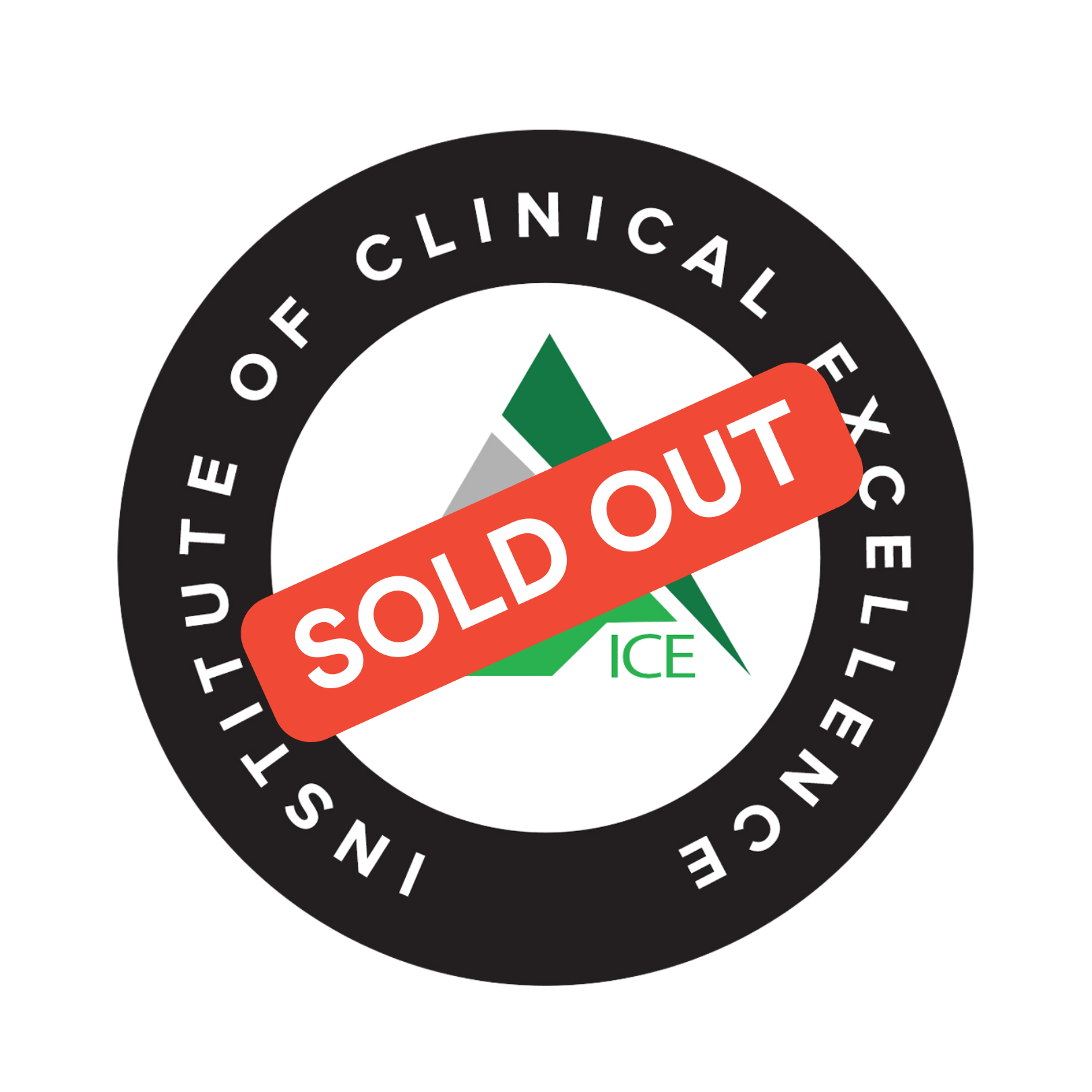
ICE Presents: Total Spine Thrust Manipulation Feb 4 - 5 2023 (Vancouver, BC)
Email us to get on the waitlist: admin@amphealthcare.ca
-
This course will cover current best evidence in the use of thrust manipulation to treat common clinical syndromes. Laboratory sessions will focus on the safe and effective delivery of thrust manipulations to the lumbar spine, sacroiliac joint, thoracic spine, and cervical spine. Lecture material will focus on the developing body of literature regarding safety of thrust manipulation, neurological examination, and the use of thrust manipulations with commonly treated patient presentations.
These presentations include (but are not limited to):
Cervicogenic headaches
Acute and chronic neck pain
Non-radicular mechanical low back pain
Sacroiliac joint dysfunction.
Additional lectures will cover the neurophysiological effects of manipulation and the importance of understanding the neurophysiology of pain in treating patients.
Student to faculty ratio: 15:1 (maximum of 15 students to 1 faculty)
Faculty: Justin Dunaway, PT, DPT, OCS, CERT. SMT, CERT. DN
-
Understand the risk factors associated with spinal manipulation and be able to screen patients properly using a thorough history and targeted physical examination
Understand the distinct components of the subjective and physical examination that guide selection of each thrust manipulation instructed
Understand the strengths and weaknesses of literature support for HVLAT in syndromes commonly treated in the outpatient setting
Demonstrate to the instructor and class proper technique with lumbar, cervical, and thoracic HVLAT
Demonstrate to the instructor and class proper technique with lumbar, cervical, and thoracic mobility exercises and their home exercise counter parts
-
DAY ONE
8:00am-8:30 | Overview of Subjective Examination & Clinical Reasoning Framework
8:30-9:30 | Indications for HVLAT and Cervical Examination
9:30-10:00 | Lab – Examination & Screening
10:00-11:00 | Contra Indications to OMT
1:00-12:00 | Lab – Mid Cervical HVLAT
12:00-1:00 | Lunch
1:00pm-1:30 | Neuro Exam
1:30 – 2:00 Lab | Neuro/instability exam
2:00-3:00 | Lab – Supine upper thoracic and ribs HVLAT
3:00-4:00 | Evidence surrounding cervical and thoracic HVLAT
4:00-4:30pm | Lab – Seated Cervical
4:30-5:30pm | Lab – Round Robin
DAY TWO
8:00am-8:30am | Q&A
8:30am-9:15am | Lumbar examination and evidence for HVLAT
9:15am–10:00am | LAB Lumbar and SL TLJ HVLAT
10:00am–11:00am | Neurophysiology of Pain/placebo/expectation
11:00am-11:30am | Prone CTJ
11:30am-12:00pm | Lab Supine mid/low thoracic; TLJ Sit to supine
12:00pm-1:00pm | Lunch
1:00pm – 1:30pm | Lab: Supine Lumbar
1:30pm – 2:00pm | HA lecture
2:00pm-2:30pm | Lab A/A
2:30pm-3:00pm | Lab: Prone Thoracic and Ribs
3:00pm – 3:30pm | SIJ exam lecture
3:30pm-4:00pm | LAB SIJ exam and HVLAT
4:00pm-5:00pm | Round Robin
A 10% cancellation fee will be applied to all refunds prior to 2 weeks before the beginning of the course. We cannot issue refunds within 2 weeks of the start date of the course.

AMP Intensive: Evidence, Insight and Management of Cervical & Thoracic Disorders (UBC MPT Grads Only)
-
This course will focus on improving clinician ability to treat patients presenting with cervico-thoracic disorders. You will learn select high yield manual therapy skills, supported by evidence, that you will use on a regular basis. More importantly, develop skills that will allow you to stage and classify patients to specific interventions and progress them through an exercise based rehabilitation program that builds self-efficacy and resiliency.
This course will also develop your communication and listening strategies. You will gain skills to build therapeutic alliance with patients which will maximize both patient outcomes and patient satisfaction.
-
Rule out serious conditions in the cervical spine.
Classify cervicothoracic patients to specific treatment groups and effectively stage patient recovery.
Apply selected thrust and non thrust manual therapy interventions proficiently.
Understand how to effectively prescribe and progress an exercise program for a patient presenting with cervicothoracic pain.
Demonstrate communication and listening skills that will enable the clinician to establish a strong therapeutic partnership with the client.
Have adopted more than 3 habits to support reflective practice and continuous growth.
-
Meet Steve Young
Steve received an undergraduate degree from the University of Victoria before attending the McMaster University physiotherapy program in Hamilton, Ontario. He graduated summa cum laude in 1999 before returning to Victoria to work in private practice. He has extensive post graduate education, organizing and attending dozens of orthopaedic and pain science courses. He previously served as CBI Health’s Senior Clinical Educator for seven years on Vancouver Island and has taught continuing education courses throughout British Columbia and North America.
Along with maintaining a full-time musculoskeletal practice, Steve has been vigorously involved in teaching throughout BC and North America. He has been published in a number of journals and previously served as Chief Editor for the Orthopaedic Division Review from 2005 to 2007.
Meet Sean Overin
In clinic, Sean facilitates an educational, evidence-based, and client-centered experience treating a variety of conditions with a diverse set of manual therapy and exercise interventions. Always psychologically informed. He has special interests in pain science, neck and low back disorders, headaches, sleep, and upper extremity conditions. In addition to clinical practice, Sean enjoys discussing, teaching, and challenging current practice trends based on the best available evidence. To do so, Sean contributes high level discussion to social media platforms on pain and rehab science. He regularly teaches and writes about his favorite topics, and mentors clinicians and students on a regular basis.
Meet Curtis Tait
Curtis has a bottomless appetite for both food and for learning and growing professionally. To this end he has taken courses in manual and manipulative therapy, IMS/dry needling, vestibular and neurological rehabilitation, as well as chronic pain seminars. Having worked in private practice, pain management, head injury programs, and in neuro-rehabilitation, Curtis works with all types of clients. Sports injuries, chronic pain conditions, vestibular, neurological and concussion presentations are all within Curtis' area of expertise.
While he maintains a diverse interest in treating all types of conditions, Curtis particularly enjoys spinal pain, headaches, hip, knee and ankle conditions, sports injuries, temporomandibular dysfunction, chronic pain, diabetes-related conditions, vestibular disorders, stroke and spinal cord injuries.
-
Saturday: 3:00PM - 8:30 PM
Sunday 8:30AM - 4:30PM

Elite Sport Mastersession: Less Pain Better Performance with Lorimer Mosely
-
A virtual course hosted by the world-leading experts in pain and performance that will teach anyone working with personal or professional performance how to minimize the constraints of pain, enabling transformative gains.
When the worlds of modern pain science and elite training collide, something exciting happens; the application of pain reduction strategies takes performances to the next level.
Sessions will be broadcasted live and recorded. Every participant will have access to a full recording for you to rewind, re-watch and review!
-
To understand contemporary thought on the relationships between injury, inflammation, nociception, pain, motor control and performance.
To understand how the nervous system changes in response to injury, inflammation, cognitive, social and contextual factors.
To understand principles that govern the operation of neuroimmune networks and apply those principles to pain, motor control and performance.
To understand principles of predictive processing and apply them to pain, motor control and performance.
To analyse clinical experiences through contemporary notions of human biopsychosociality and bioplasticity.
To understand, apply, analyse and evaluate the Fit for Play model of prevention, rehabilitation, analysis and optimisation of motor control and performance.
To create and modify rehabilitation plans informed by modern neuroimmune science.
To understand the implications of cutting edge neuroimmunology for injury management, pre-season and in season strategies to optimise pain and performance.
To integrate and adapt clinical innovations from across performance genres to optimise clinical and performance outcomes
To create and modify pre-season and in-season strategies to optimise clinical and performance outcomes.
To solve clinical problems by integrating and applying contemporary knowledge frameworks – neuroimmune learning, learning science, conceptual change theory, skill acquisition, cognitive-behavioural change.
To apply assessment, evaluation and intervention strategies to optimise clinical and performance outcomes.
-
Lorimer will be joined by an incredible line-up of world-leading experts in pain and performance
Dr. Darren Burgess, one of the best-known high-performance coaches in football, former fitness coach for Liverpool FC and high performance manager for the Australian national team.
Dr John Baranoff, a psychologist who specialises in psychology of sport injury rehabilitation and pain psychology
Prof. Mark Hutchinson, is a professor in the Adelaide Medical School and is the Director of the ARC Centre of Excellence for Nanoscale BioPhotonics, he specialises in biopsychosocial pain from the nanoscale, to the cells to systems and this MasterSession will focus on Biomes and predicting injury using biometrics.
And lots more…
WHY THIS FACULTY?
Professor Lorimer Moseley AO has been working with elite performers in sport and music for 25 years. Originally engaged to work with performers challenged by persisting pain, delayed return to play, or complex motor discoordination, his contributions have expanded to optimizing performance outcomes at individual and organizational levels. In those years, he has crossed paths with and learned a great deal from, clinicians, coaches and consultants working at the very top of their field.
These elite science, performance and clinical experts have been integrating and evaluating cutting edge discoveries in their own practice to drive the pursuit of two common aims: less pain and better performance. They have top shelf CVs packed full or important contributions to elite and recreational sport, music, theatre, dance and circus performance. Interactions with these experts have revealed shared and contrasting perspectives, triggered vigorous discussions, led to collaborative clinical engagements and generated research projects that traverse the pipeline from discovery to clinical trials.
Lorimer has finally managed to find a window in all their busy schedules to bring them together for 16 hours of learning, from cutting edge science to coalface practice, dedicated to Less Pain and Better Performance. Using the proven teaching and learning systems of Master Sessions (this is no ordinary online course!), they will engage you in strategies to enhance your own learning as well as that of your clients.
Over four content packed days, with lectures, panels, one-on-one interviews, and extensive Q and A, these bonafide international experts will share their insights, discuss their successes, failures, challenges and opportunities, with the sole objective of helping you optimise your clinical and performance outcomes: Less Pain. Better Performance.
-
Know pain and know gain, moods and foods, rest and recovery, cold and conditioning, practice and protocols, resources and tools, coaching and coaxing, respiration, preparation, communication and organisations.
Using modern immune and neuroscience to optimize clinical and performance outcomes in recreational, occupational and elite performers.
The Cortical Body Matrix – the integrated neuroimmune networks that subserve the physiological, motor and perceptual regulation of our body.
The Fit for Play model – understanding pain, protection and performance, refining the Cortical Body Matrix, and ensuring the unified, biopsychosocial, human is Fit for Play.
Contemporary theory and practice to optimize clinical, motor and performance outcomes in musicians and organizations.
Contemporary theory and practice to optimize clinical, motor and performance outcomes in elite athletes and organizations.
Contemporary theory and practice to optimize clinical, motor and performance outcomes in recreational performers.
Contemporary theory and practice to optimize clinical, motor and performance outcomes in performers post-career.
Clinical applications: Lessons, learnings and outstanding challenges at the coalface: sport, music, circus.

ICE Presents: Cervical Spine | Manual Therapy Management (Vancouver)
-
This course will cover current best evidence in the physical therapy management of neck pain. Lecture material will summarize the developing body of literature regarding the subgrouping of cervical spine patients. We will present and discuss relevant safety concerns of evidence based treatments with a special emphasis on cervical spine thrust manipulation.
The laboratory component will focus on the safe and effective delivery of thrust and non-thrust manipulation to the cervicothoracic spine and supporting mobility and motor control exercises. The didactic portion will comprise 30% of the class with 70% of the time being spent in the lab.
-
Understand the risk factors associated with spinal manipulation and be able to screen patients properly using a thorough history and targeted physical examination
Understand the strengths and limitations of current objective tests for vascular insufficiency in the cervical spine
Perform a thorough objective examination using clinical practice guidelines and current best evidence to determine which data to collect
Demonstrate an excellent understanding of current best evidence in regards to manual therapy, thrust and non-thrust joint mobilization techniques, in the treatment of patients with neck pain.
Demonstrate proper technique with cervical mobilization and thrust manipulation to the cervical and thoracic spine
Demonstrate proper technique with all cervical and thoracic mobility exercises and their home exercise counter parts
Perform upper cervical ligament integrity testing
-
DAY ONE
8:00am-9:00am | Subjective exam and clinical reasoning
9:00am-9:30am | Cervicothoracic examination
9:30am-10:00am | Examination lab
10:00am-10:30am: Subgrouping and manual therapy
10:30am-11:00am: Cervical manipulation safety
11:00am-12:00pm: Lab – Cervical thrust lab
12:00pm-1:00pm | Lunch
1:00-1:30 | Cervical mobilization lab
1:30pm-2:30 | Cervical mobility/motor control
2:30-3:30 | Lab – Mid thoracic manipulation
3:30-4:30 | Thoracic mobility/motor control
4:30-5:00pm | Lab – Student demonstration
DAY TWO
8:00am-8:30 | Patient expectation and HEP compliance
8:30-9:30 | Upper Csp: Risk/ligament testing
9:30-10:00 | Lab - Instability testing, CN test, BP
10:00-11:00 | Lab – Upper cervical thrust
11:00-12:00pm | Open lab – demonstration
12:00pm-1:00pm | Lunch
1:00pm – 1:30 | Lab – Upper thoracic thrust
1:30-2:00 | Legislative Update
2:00 – 2:30 | Lab – Cervicothoracic junction
2:30 – 3:30 | Lumbar manipulation: Broad overview
3:30 – 4:00pm | Open lab – review and demonstration

Pelvic Rehab Presents: Urinary/Fecal Incontinence and Pelvic Organ Prolapse (An intensive intro course)
-
Friday 8:00AM – 5:00PM (Online)
Saturday 3:00PM-8:00PM (In-person lab)
Sunday 8:00AM – 5:00PM (In-person lab)
Follow-Up Session: October 6th, 4:00PM-8:00PM (Online)
*full attendance is required to receive course certificate
-
Lecture, discussion, case studies and lab
Lab component involves internal palpation
An optional half-day clinical shadow or a 1 hour virtual consult within 3 months of course completion
-
This course examines, in an evidence-based approach, the presentation, pathophysiology, and physical therapy evaluation and interventions for adults of all gender expressions experiencing bladder and bowel dysfunction, incontinence and pelvic organ prolapse.Theory, research, demonstration, and practical sessions including subjective/objective assessment and treatment of these conditions will be included. Examination of the pelvic floor via perineal observation, internal vaginal and rectal exam; treatment techniques specific to assessment findings; and the use of EMG biofeedback in small groups will be covered.
Class size is limited to ensure optimum learning, practice, and translation of skill. Instruction on how to screen for low estrogen, vulvar skin and vaginal pain conditions for proper referral and/or treatment will be included. A common sense, evidence-informed, and critical thinking approach will be implemented throughout the course. Participants will be challenged to problem-solve. The physiotherapist will leave the course with new conditions to treat and skills to use immediately on return to their office the next day! EMG biofeedback units will be available for each group of 2-3 physical therapists throughout the course for all lab sessions. Course participants will participate in the lab/practical session which will involve perineal, vaginal and/or rectal examination.
Our courses focus on active rather than passive techniques. Treatment techniques are supported by incontinence, prolapse and pain science peer-reviewed literature. Learn new techniques for your “tool box” that are not myofascial or trigger point related. There is an emphasis on client empowerment through education and active treatment.
Course participants also receive an optional 1/2 day clinical shadow opportunity OR a 1-hour scheduled phone or Zoom consult with course instructor within 3 months of course completion.
-
Understand pelvic floor anatomy
Understand the anatomy and physiology of typical bladder and bowel control mechanisms.
Understand the causes, different diagnoses, pathophysiology, prevalence, and clinical presentation of various conditions that affect bladder and bowel control.
Know how to recognize the clinical presentation of the above conditions.
Know when to administer a voiding and/or fibre diary and how to provide dietary and behavioural intervention as indicated from the completed diary.
Understand the causes, different diagnoses, pathophysiology, prevalence and clinical presentation of pelvic organ prolapse.
Know how to recognize the clinical presentation of pelvic organ prolapse.
Be able to perform a subjective and objective assessment of the above conditions, including examination of the pelvic floor via perineal observation, internal vaginal and rectal examination.
Be able to screen and refer for low estrogen, vulvar autoimmune diseases and other vaginal conditions, as well as an understanding of medical treatments for these conditions.
Understand and have exposure to actual pessaries and their use for incontinence and prolapse.
Understand and have exposure to penile clamps and inserts for the management of male stress urinary incontinence.
Be comfortable with the use of EMG biofeedback for both pelvic floor assessment and treatment.
Be able to provide evidence-informed treatments for above conditions based on research and clinical reasoning.
Be able to differentiate between pelvic floor proprioception/motor control and strength issues.
Be able to provide guidelines for general exercise and activities of daily living when pelvic floor dysfunction is present.
Have explored and understand concepts of appropriate co-contraction of the transversus abdominis and the pelvic floor.
Have explored and understand concepts of pelvic floor hypertonicity and increased tone in patients with no neurological deficit.
Understand the impact of these conditions on people’s lives in all aspects of biopsychosocial function.
Understand appropriate outcome measures.
**This course is open to Registered Physical Therapists, physicians, nurse practitioners, midwives, registered nurses, naturopaths and physical therapy students.
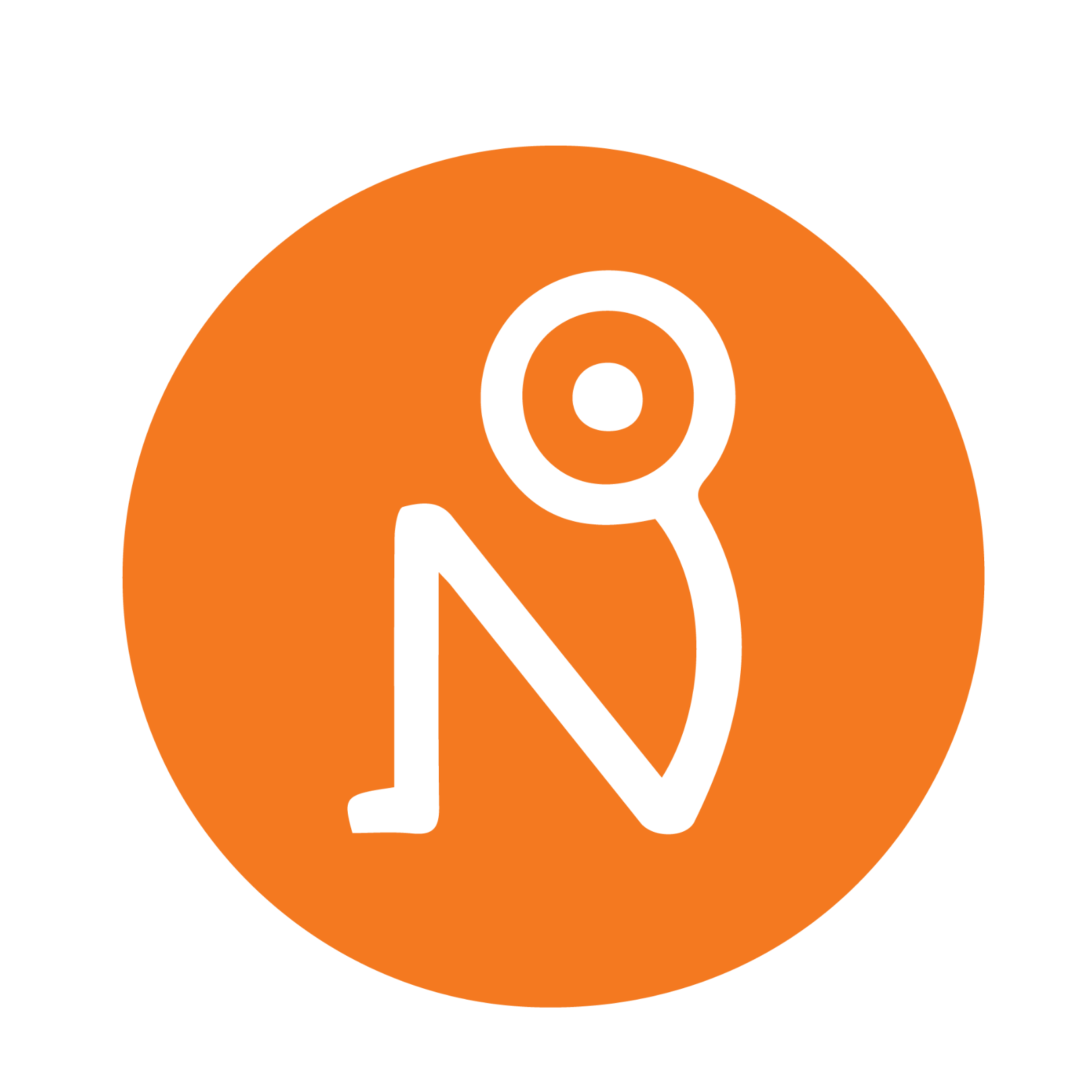
NOI Presents: Mobilization of the Neuroimmune System (in Vancouver, BC)
Mobilize – to prepare, to awaken and to move.
What: Mobilization of the Neuroimmune System two-day interactive seminar
Where: Lifemark Physiotherapy | 181 Keefer Pl #230, Vancouver, BC
When: February 12th & 13th 2022 | 8:30-4:30 both days.
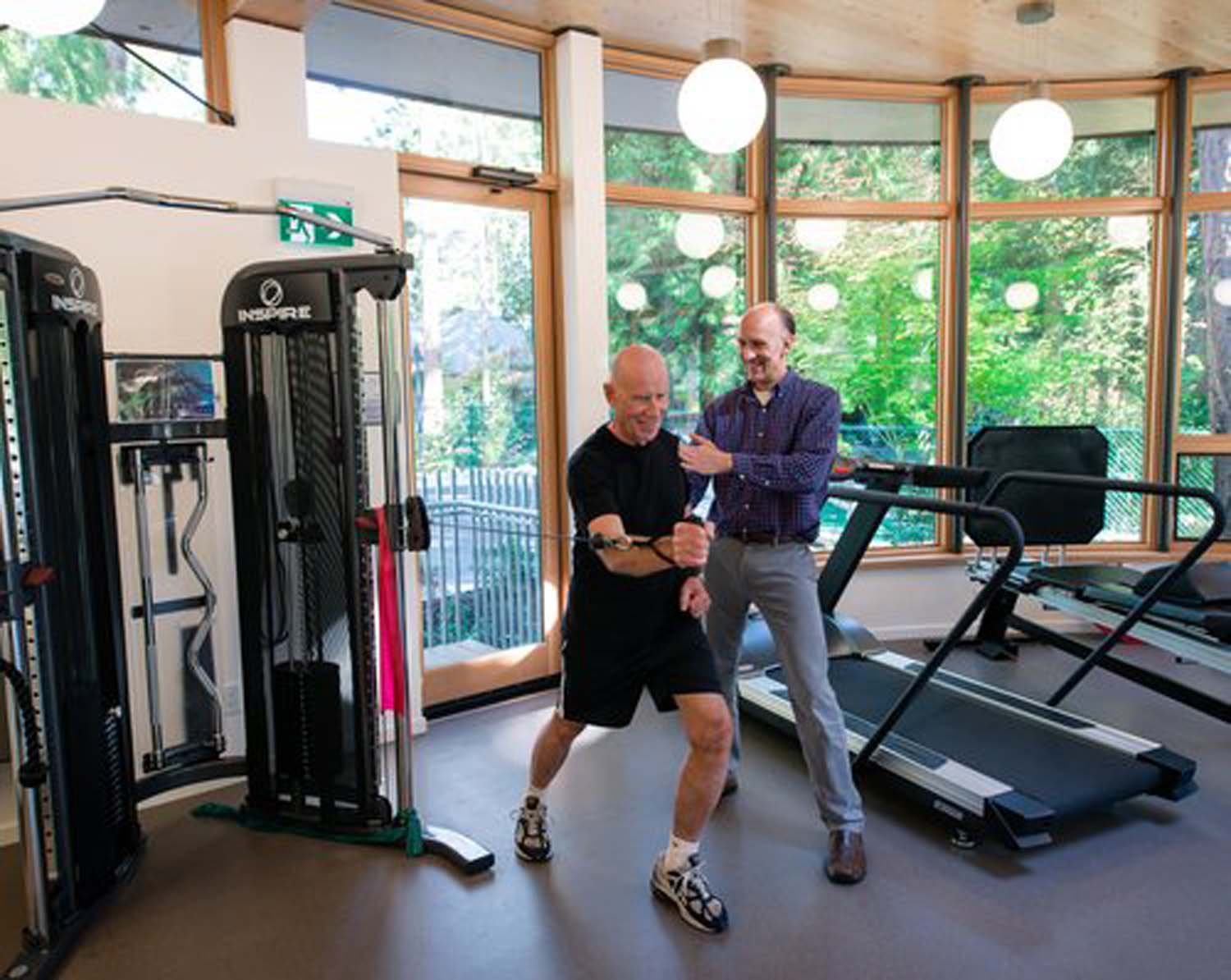
NOI Presents: Mobilization of the Neuroimmune System (in Vancouver)
NOI’s classic, longest running course, Mobilization of the Nervous System, has evolved. Based on the latest evidence, the course has been completely updated and re-written ‘from the basic science up’. The research is compelling – the immune system via its interaction with the nervous system is a critical player in learning, memory, movement and sensitivity. This new understanding integrates peripheral and central processes and targets therapy towards healthy neuroimmune balance.This comprehensive lecture and hands-on course integrates the latest research on neurodynamics and neuroimmune science to provide a clinical reasoning framework to identify those patients who will benefit from neuroimmune mobilization. The course then updates and refines the essential practical skills to examine and manage the physical health of the nervous system – skilled, safe and appropriately timed handling techniques are covered in detail during labs and practical sessions.

NOI Presents: Mobilization of the Neuroimmune System (in Vancouver) (Copy) (Copy)
NOI’s classic, longest running course, Mobilization of the Nervous System, has evolved. Based on the latest evidence, the course has been completely updated and re-written ‘from the basic science up’. The research is compelling – the immune system via its interaction with the nervous system is a critical player in learning, memory, movement and sensitivity. This new understanding integrates peripheral and central processes and targets therapy towards healthy neuroimmune balance.This comprehensive lecture and hands-on course integrates the latest research on neurodynamics and neuroimmune science to provide a clinical reasoning framework to identify those patients who will benefit from neuroimmune mobilization. The course then updates and refines the essential practical skills to examine and manage the physical health of the nervous system – skilled, safe and appropriately timed handling techniques are covered in detail during labs and practical sessions.

AMP's Knowledge Project: Evidence, Insight and Management of Lumbo-Pelvic & Hip Disorders
$800.00 CAD
What: 4 week blended online and in-person course
When: March 9th- April 3rd 2022
Where: Tall Tree Physiotherapy & Health Centre - 956 Commercial Drive
Vancouver, BC. V5L 3W7. (See map below)
“How it was extended over a month. I was able to put the things I learned into practice better this way. It really helped consolidate my learning!”
The goal of this course is for you to successfully learn and transfer evidence into your clinical practice. This sounds easy, but it takes intention and strategy to do it successfully. Most weekend courses do not achieve a material change in practice. The short time frame and the lack of opportunity to practice new skills and knowledge in a clinical setting do not facilitate consolidation. That’s why we’ve revisioned a weekend course to take place over the course of a month with structured reflection, regular prompting, high frequency touch points, and a chance to, again and again, engage with the material and transfer it to your clinical practice while being supported by course facilitators.
We guarantee that this course will enhance your practice.
This 4 week blended online and in-person course will focus on improving clinician ability to treat patients presenting with lumbopelvic and hip disorders. Learn select high yield manual therapy skills that are supported by evidence and that you will use on a regular basis. More importantly, develop skills that will allow you to stage and classify patients to specific interventions and progress them through an exercise-based rehabilitation program that builds self-efficacy and resiliency. This course will also develop your communication and pedagogical strategies. You will gain insight and skills to effectively apply principles from pain sciences; which will maximize both patient outcomes and patient satisfaction.
Course features:
Blended online and in-person
Morning coffee emails with prompts to explore, reflect, and focus on key topic areas.
Discussion boards to consolidate new ideas, explore nuance and application, and learn from peers and facilitators.
Two high signals in-person Sunday sessions.
Two live evening webinars.
A wealth of reference materials to dive into and explore during and after the course.
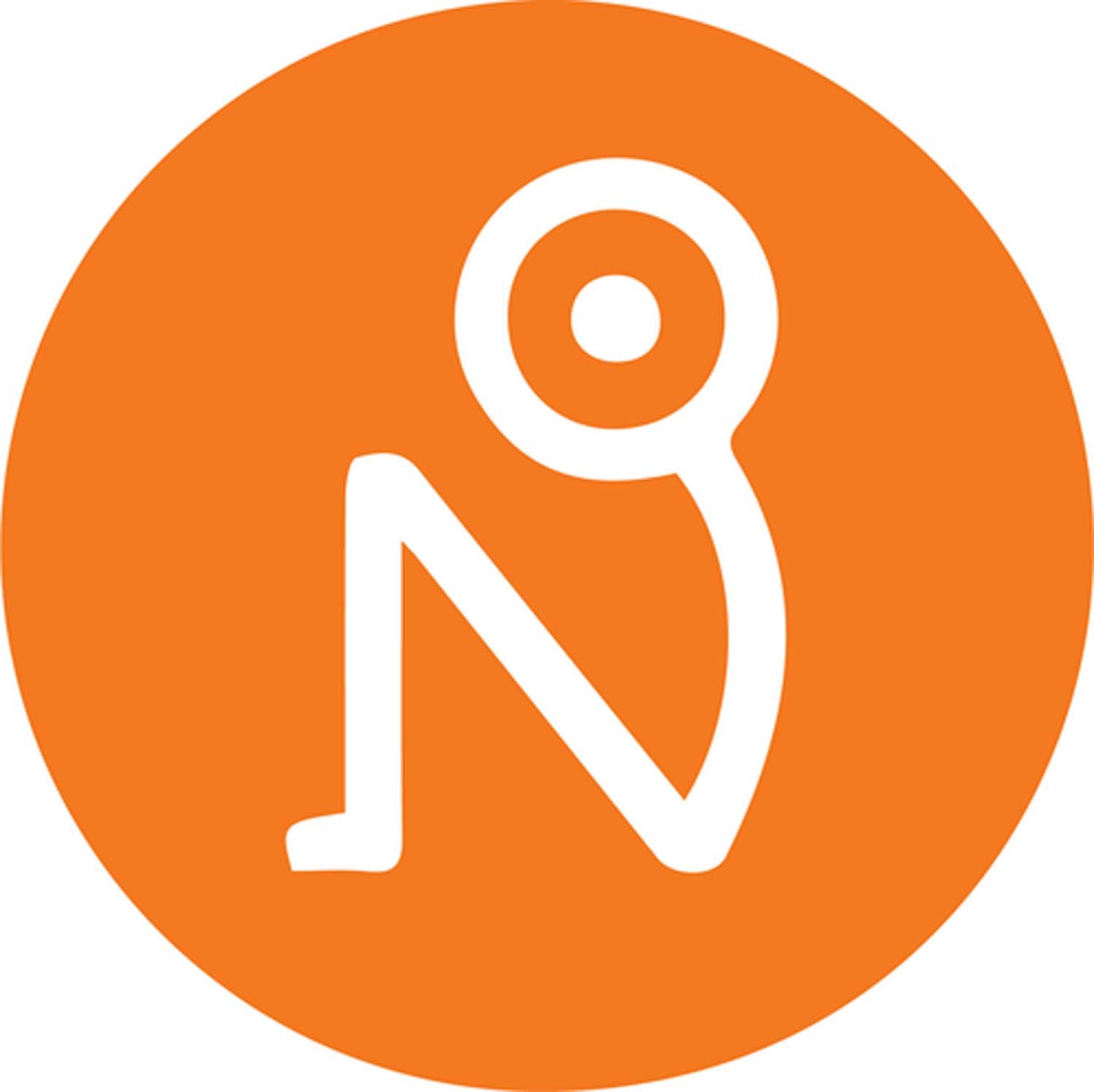
NOI Presents: Mobilization of the Neuroimmune System (in Vancouver)
What: Mobilization of the Neuroimmune System two-day interactive seminar
Where: Lifemark Physiotherapy | 181 Keefer Pl #230, Vancouver, BC
When: February 12th & 13th 2022 | 8:30-4:30 both days.
$720.00
MOBILIZE – TO PREPARE, TO AWAKEN AND TO MOVE.
NOI’s classic, longest running course, Mobilization of the Nervous System, has evolved. Based on the latest evidence, the course has been completely updated and re-written ‘from the basic science up’. The research is compelling – the immune system via its interaction with the nervous system is a critical player in learning, memory, movement and sensitivity. This new understanding integrates peripheral and central processes and targets therapy towards healthy neuroimmune balance.
This comprehensive lecture and hands-on course integrates the latest research on neurodynamics and neuroimmune science to provide a clinical reasoning framework to identify those patients who will benefit from neuroimmune mobilization. The course then updates and refines the essential practical skills to examine and manage the physical health of the nervous system – skilled, safe and appropriately timed handling techniques are covered in detail during labs and practical sessions.










